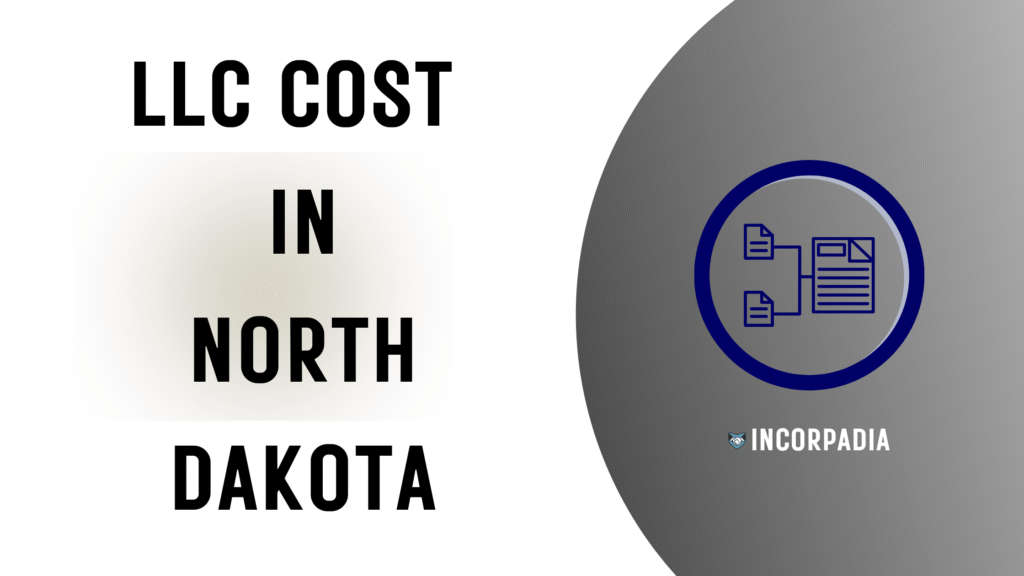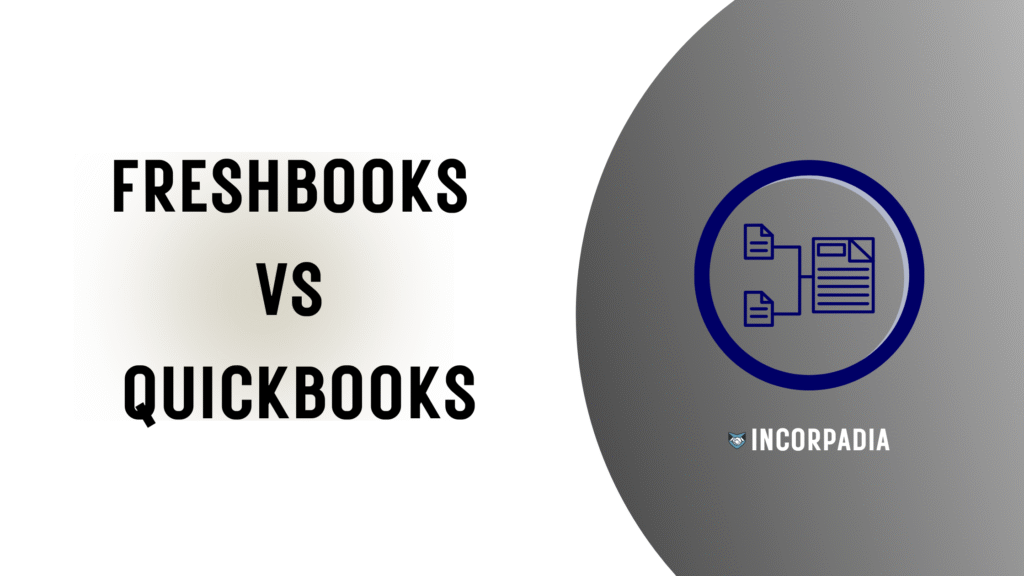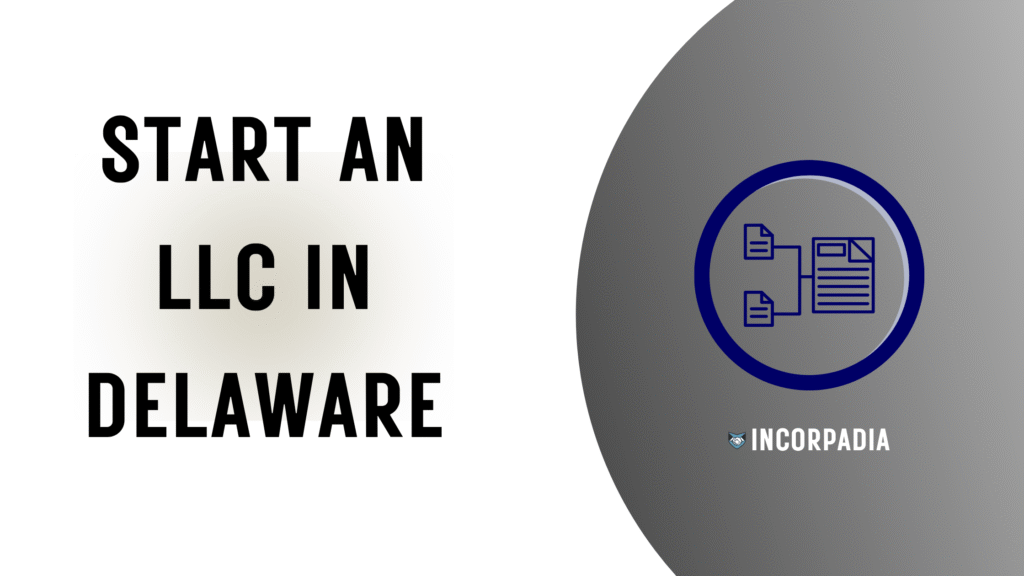Starting a business is an exciting endeavor, and one of the most popular legal structures for businesses today is the Limited Liability Company (LLC). This structure is highly favored for its flexibility, liability protection, and ease of management. If you’re thinking of forming an LLC in North Dakota, you’re in luck—North Dakota offers an easy and affordable process for business owners to form an LLC.
In this step-by-step guide, we will walk you through everything you need to know to start your LLC in North Dakota in 2025, from naming your LLC to filing the necessary paperwork. We’ll also discuss post-formation requirements, tax obligations, and answers to common questions.
Costs Summary
| Service | Fee (USD) | Notes |
|---|---|---|
| Articles of Organization | $135 | One-time state filing fee to form the LLC. |
| Annual Report | $50 | Due annually by November 15. |
| Late Filing Penalty | $50 | Applies if the annual report is filed after the deadline. |
| Registered Agent (Optional) | $0–$125/year | Free if you act as your own agent; otherwise, annual fee applies. |
| Trade Name (DBA) Registration | $25 | Optional; required if using a name other than the LLC’s legal name. |
| Name Reservation (Optional) | $10 | Optional; reserves your LLC name for 120 days. |
| Certificate of Good Standing | $20 | Optional; proves your LLC is in good standing with the state. |
Here are the steps to forming an LLC in North Dakota
Starting an LLC in North Dakota is a straightforward process. However, each step needs your attention to detail, and taking the time to understand the requirements can save you time and money in the long run.
Step 1: Search for Your LLC Name
The first step in forming an LLC in North Dakota is choosing a unique name for your LLC. Your LLC’s name must follow certain state rules:
- It must include “Limited Liability Company” or “LLC”. This lets everyone know that your business is an LLC and not another type of business entity.
- It must be distinguishable from existing businesses in the state of North Dakota. Your LLC name cannot be identical or too similar to the name of another registered business.
- It cannot include words that could confuse your LLC with a government agency. For example, words like “FBI,” “Treasury,” or “State Department” are not allowed.
- It cannot imply a purpose other than what is allowed by law. For example, an LLC formed for real estate investments shouldn’t use “banking” in its name if it’s not in the banking business.
To ensure that your desired name is available, conduct a name search through the North Dakota Secretary of State’s online database. This is a free service that allows you to check if the name you want to use is already taken by another business.
Once you have your name, it is often a good idea to reserve it, especially if you’re not filing your LLC right away. In North Dakota, you can reserve your LLC name for up to one year by filing a Reservation of Name form with the Secretary of State’s office. This ensures that no one else can use your name while you’re preparing your formation documents.
Step 2: Choose a Registered Agent
A registered agent is a person or business entity that is authorized to receive legal documents on behalf of your LLC. In North Dakota, every LLC is required to appoint a registered agent with a physical address in the state. The registered agent serves as the point of contact for receiving legal documents, government notices, and service of process.
Who can be an LLC Registered Agent?
- A person who is a resident of North Dakota and has a physical address in the state.
- A professional registered agent service. These companies specialize in acting as registered agents for businesses, ensuring that you stay compliant with state laws. They also offer privacy benefits because they keep your personal address off public records.
Most LLC owners choose to use a registered agent service to handle the responsibilities and ensure that legal notices and documents are handled properly and on time. This can be particularly helpful for business owners who are not located in North Dakota or who prefer privacy and professionalism. It is important to note that your registered agent must be available during regular business hours to receive legal notices.
While you can act as your own registered agent, many business owners prefer the added convenience and privacy that comes with a professional service.
Step 3: File Articles of Organization
The next step in forming your LLC is filing the Articles of Organization with the North Dakota Secretary of State. This is the formal document that officially creates your LLC. The Articles of Organization include basic information about your business, such as:
- LLC Name: The official name of your LLC.
- Principal Office Address: The physical address of your business (it can be a home address, but it must be a real address—P.O. Boxes are not acceptable).
- Registered Agent Information: The name and address of your registered agent.
- LLC Duration: You can choose to have your LLC exist for a specific period, or you can choose for it to exist indefinitely (most LLCs are perpetual).
- Business Purpose: A brief statement about what your LLC will do.
You can file your Articles of Organization online through the North Dakota Secretary of State’s website. The filing fee is $135 if you file online, and the processing time is typically about 5-7 business days. If you choose to file by mail, the processing time may take longer.
Once your Articles of Organization are approved, your LLC will officially be recognized as a legal entity in North Dakota.
Step 4: Create an Operating Agreement
While North Dakota doesn’t require LLCs to have an operating agreement, it is highly recommended that you create one. An Operating Agreement is an internal document that outlines how your LLC will be run and the rights and responsibilities of its members. It provides clarity on key issues, including:
- Ownership and Profit Distribution: How much each member owns in the LLC and how profits (and losses) will be shared.
- Management Structure: Whether your LLC will be member-managed (where all members have a say in the business’s decisions) or manager-managed (where a manager or group of managers handles the day-to-day operations).
- Voting Rights: How decisions are made in your LLC (whether members have an equal vote or votes are weighted based on ownership).
- Transfer of Membership Interests: How ownership stakes in the LLC can be transferred if a member decides to sell or leave.
Even if you are the sole member of your LLC, having an Operating Agreement helps establish clear expectations and legal protections. It is also beneficial if you ever have to prove ownership or the rules of your LLC in court or with business partners.
Step 5: Get an EIN for Your LLC
An Employer Identification Number (EIN) is required for all LLCs that plan to hire employees, open a business bank account, or pay federal taxes. The EIN is a unique number assigned to your business by the Internal Revenue Service (IRS), and it serves as your LLC’s federal tax identification number.
You can apply for an EIN for free directly on the IRS website. The process is quick, and you will receive your EIN immediately after completing the application. Even if you don’t plan to hire employees, it is a good idea to get an EIN so you can open a business bank account and separate your business finances from your personal finances.
What Do I Do After My LLC is Approved?
Once your LLC is formed and your Articles of Organization are approved, there are several post-formation steps you’ll need to follow to ensure your LLC remains in good standing with the state.
Step 1: Open a Business Bank Account
Opening a separate business bank account is essential for maintaining your LLC’s legal protection. Keeping your personal and business finances separate helps to ensure that your LLC’s limited liability status is not compromised in case of lawsuits or debts. To open a business bank account, you will need:
- A copy of your LLC’s Articles of Organization
- Your EIN
- A copy of your Operating Agreement (if you have one)
- A valid photo ID
Step 2: Get Necessary Business Licenses and Permits
Depending on the type of business you plan to operate, you may need special licenses or permits to comply with local, state, or federal regulations. For example, businesses in certain industries such as health care, food service, and construction may need specific licenses or certifications.
You can check with local city or county authorities and the North Dakota Department of Health or other relevant agencies to determine the necessary permits for your specific business.
Step 3: Comply With Tax Requirements
Your LLC will be subject to federal and state taxes. North Dakota LLCs are generally pass-through entities, meaning that the LLC itself does not pay income taxes. Instead, profits and losses pass through to the individual members, who report them on their personal tax returns.
However, if your LLC has employees, you’ll also need to register for North Dakota state payroll taxes. You can register with the North Dakota Office of State Tax Commissioner. Additionally, if your business will be selling goods or services, you will likely need to collect and remit sales tax to the state.
What Are the Ongoing Requirements for My LLC?
After forming your LLC, it’s important to keep up with the state’s ongoing compliance requirements to avoid penalties and keep your LLC in good standing.
Annual Report
Every LLC in North Dakota is required to file an Annual Report with the Secretary of State. The Annual Report is due by November 15 of each year. The filing fee for the Annual Report is $50, and it can be filed online through the Secretary of State’s website.
If you fail to file your Annual Report within six months of the due date, your LLC may be administratively dissolved, meaning it will no longer be considered a legal entity.
Taxes
North Dakota LLCs are typically taxed as pass-through entities, but if your LLC has elected to be taxed as a corporation, different tax rules will apply. Consult with a tax professional to understand your specific tax obligations and avoid any surprises at tax time.
Conclusion
In conclusion, starting an LLC in North Dakota in 2025 is a relatively simple process with the right steps and documentation. By following this guide, you’ll be on your way to creating a business that is legally protected and set up for success. Always remember to keep up with annual requirements and tax obligations to keep your LLC in good standing with the state.
FAQs
Can I form an LLC in North Dakota if I’m not a resident?
Yes, you can form an LLC in North Dakota even if you are not a resident of the state. However, you must have a registered agent who resides in North Dakota or is authorized to do business in the state.
How much does it cost to form an LLC in North Dakota?
The filing fee for the Articles of Organization is $135. There is also an annual report fee of $50.
Can I manage my LLC by myself?
Yes, if you are the only member of your LLC, you can manage your LLC as a member-managed LLC. You will have full control over the business, and the operating agreement should outline your responsibilities and decision-making powers.
How do I reinstate a revoked LLC?
If your LLC’s status is revoked due to non-compliance (like failure to file an annual report), you can apply for reinstatement by filing the necessary forms and paying any outstanding fees.







